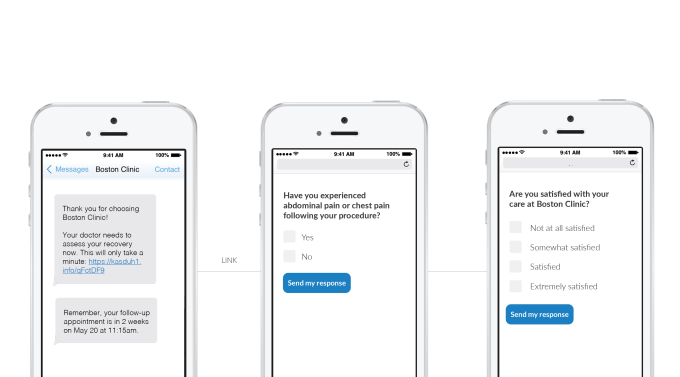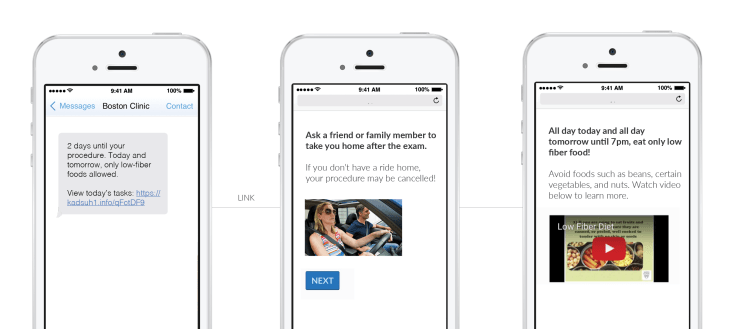Medumo co-founder Adeel Yang has plenty of first-hand experience dealing with cancellations for procedures and appointments as a physician — but it’s been a problem that’s a deceptively hard to solve.
So Yang and his co-founders decided to start Medumo to address the problem they’ve seen so often themselves. The company’s main goal is to reduce procedure cancellations the day of, which can be costly both for the patient and also for the medical facilities and all parties involved. But those cancellations can be a result of, for examples, patients simply forgetting they aren’t supposed to eat for a while before the procedure. Even something as simple as getting your wisdom teeth taken out requires skipping the food and water in the morning, but habits baked into the way we work can easily make us forget — making that little nudge even more important. Medumo is launching out of Y Combinator’s winter 2018 class.
“When the patients forget to do critical tasks before a procedure or surgery, they have to be canceled last-minute, which costs a hospital lots of money or they have to get rescheduled or delay the process,” Yang said. “The worst situation is when a patient is poorly prepared but still goes through the surgery or procedure and as a result they have poor outcomes. Based on that experience we knew we wanted to do something to improve the way the instructions were delivered to patients. Tech was one way, but another way is to really understand how patients were receiving information based on their different characteristics.”
Part of Medumo’s pitch is figuring out how patients engage with the content that prepares them for a procedure. Medumo will try a variety of different approaches, even going down to text messaging, to figure out which ones the patient is actually paying attention. It then learns over time not only which methods were most effective for that patient, but which ones are best for patients in general.
“The key here is it’s a combination of demographic and medical variables and engagement variables,” Yang said. “Over time because we’re sending lots of different touch points to patients, we’re collecting results on how these patients respond to different messages like what lengths are they clicking on. Those are the engagement variables that only we have and only we can collect. This is not something readily available in the patient’s chart. It’s the data that has to be built up over time.”

That can easily extend to a lot of different procedures and post-procedure care, where some of the rigorous steps a physician provides could sometimes just go forgotten, Yang said. Right now the firm is focusing on common high-volume procedures like endoscopy or colonoscopy, but it’s not hard to see that it could begin expanding to other kinds of preparation. There’s already a lot of content and best practices out there, and the key bit is about the delivery and actually getting patients to follow those practices, Yang said.
To be sure, there are a lot of patient outreach startups like HealthGrid out there looking to reduce hospitalizations — which is the kind of low-hanging fruit that’s attractive for a startup like Medumo. So it could be easy to see that a class of startups in this space could quickly become a graveyard if it’s a race to create the best content or get the first big install base and big insurance or healthcare providers decide to jump in. But Yang’s hope is that by figuring out how to engage with those patients, rather than just figuring out what’s most engaging, is the problem that will make it competitive enough.
